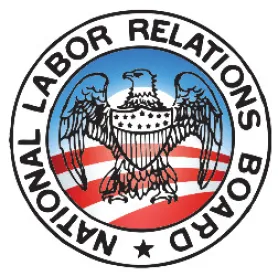For those of us in the employment field attempting to recover from the languor of long summer days, it’s time to catch up and ask what the NLRB has been up to during the dog days. The answer – a lot. And so we take this opportunity to recap what has been a busy time during which long-held positions have been cast aside and new, and apparently frightening (at least to management), principles have been established.
Let’s start with the good news. If you are one of our readers fortunate enough to own a large college with a major sports team you will have been pleased to learn that, at least for now, student athletes on scholarships are not “employees” for the purposes of union organizing.
And now back to reality. Unless you are among the 0.5 percent of employers whose employees communicate exclusively by passing hand scribbled notes, you will be concerned about your ability to regulate internet communications. Verizon Wireless tried to retain some control by stating that it had the right to discipline employees for “embarrassing” the company over the internet. An NLRB judge found that position to be “overly broad” and in violation of labor law since it could affect an employee’s ability to communicate about working conditions.
In the same vein, one of Boeing’s policies became a victim of NLRB “new-think” and crashed and burned. The company’s policy “directed” internal employee witnesses not to discuss pending investigations with others. When a sensitive employee claimed the restriction was an unfair labor practice, Boeing piloted a new course and downgraded the restriction to a mere “recommendation.” The Board, the guardian of the hyper-sensitivities of the American worker, found that even that mild suggestion might impede employees’ ability to discuss terms and conditions of employment and therefore the policy was still invalid.
But employee sensitivities appear to vary and depend on who’s asking. For many years, the NLRB has barred union access to employee witness statements submitted to the employer, treating them as confidential. In July, the Board decided that employees no longer need that protection and that, faced with a union demand to hand them over, the employer must show that it promised the witness confidentiality and/or the employer can demonstrate a “confidentiality interest” that outweighs the union’s right to know.
In other instances the NLRB has decided employees do need protection. In its D.R.Horton opinion, the NLRB previously decided that “mandatory arbitration agreements” violated the NLRA because the employees waived their right to bring class or collective claims against their employer. One employer sought to avoid the “mandatory” label by giving its employees a choice with a 10-day period to opt out of such an agreement. But, the Board ruled that because the employees’ choice required them to actually do something — i.e., affirmatively say they didn’t want it — this “significantly burdened” their rights and still violated the NLRA.
All these reversals and changes may seem as pinpricks when measured against the Board’s new analysis of “joint employer” relationships. Until August this year, through decades of Democratic and Republican administrations and their hand-picked, parochial Boards, the principle has constantly been this: a joint employer relationship is created only when the second employer actually exercises control the employees. Mere potential or latent power has never been enough.
However, when the current Board examined the issue, it concluded that this long-accepted principle had existed in some kind of legal vacuum and had no basis in the NLRA or the common law and was unsupported by any Board or legal precedent. Once that startling discovery had been made, it was easy to sweep the principle aside. What this will mean going forward is enough to give many business leaders a bad case of heartburn. A pending massive NLRB case against McDonald’s USA LLC asserts that McDonald’s, the franchisor, is a joint employer of many of its separate franchisees across the country. The consolidated case, whose hearing has been postponed until January, could have a huge impact on the franchisor/franchisee industry and may tell us who, in the end, is going to be served the happy meal.



 />i
/>i